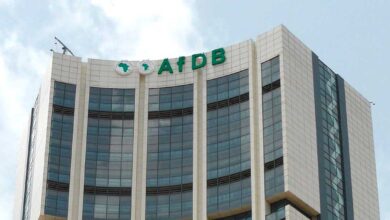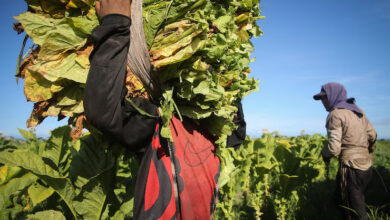U.S. Embassy Zimbabwe Small Grant Funding Opportunities

Here are a list of funding opportunities offered by the U.S. Embassy, Harare, Zimbabwe

Ambassador’s Special Self-Help (SSH) Program
The Ambassador’s Special Self-Help (SSH) Program provides grants to assist small-scale community development projects that improve basic economic or social conditions at the village level. Distinct from larger-scale assistance carried out by other parts of the U.S. government, these funds support small, short-term, community-driven activities designed to bring about tangible and immediate improvements in peoples’ lives. Since the program’s inception in 1980, the U.S. Ambassador’s SSH Program has awarded more than $3 million throughout Zimbabwe.
Interested in improving your community?
Read more below to see if the SSH Program can help!
Preference is given to projects focusing on:
- Income generation
- Education and vocational training
- Access to water and improved natural resource management
- Health, nutrition, and social services to assist vulnerable or at-risk populations (such as women, children, and persons living with HIV/AIDS).
Grant Guidelines
Are you interested in applying? Here are a few things you should know:
- Individuals, businesses, and government entities do not qualify. Applicants must be non-governmental, non-profit or community-based organizations registered for at least one year.
- The organization must be entirely Zimbabwean and its members nationals of the host country.
- Self-Help funding cannot pay for operating costs, salaries, training, vehicles, or computers.
- Construction projects and repair of existing facilities are currently not allowed.
- The grants typically range from $5,000 to $25,000.
- Grantees must complete their projects within 12 months of signing the grant agreement.
- We accept applications year-round. However, we receive hundreds of applications and can only fund a select few each year.
- Applicants must provide a plan describing how they will accomplish the project. Successful applicants are required to report on the progress of their work (mid-year and final reports) and submit receipts for grant-funded purchases.
- Projects must benefit the greatest number of people possible, be results-oriented, well-planned, and operated and maintained by a local organization.
- Recipient organizations must demonstrate their commitment by either contributing to the project financially, or providing labor or supplies to carry out the project.
- We cannot fund the same project two years in a row. New organizations are encouraged to apply.
Funding Sources
Find out what opportunity best applies to your organization!
- Ambassador’s Special Self-Help (SSH) Fund
The Ambassador’s SSH Fund supports community-initiated projects in areas such as education, access to healthy food, income-generating activities, and water/sanitation initiatives, as well as other activities that improve living conditions, provide education, or increase income. - United States African Development Foundation Fund (USADF)
The USADF only funds income generating projects. Examples of projects previously funded include sewing projects, nutritional gardens, grinding mills, artisan activities, etc. - President’s Emergency Plan for AIDS Relief (PEPFAR) Small Grants Program
The PEPFAR Small Grants Program funds activities that enable community- and faith-based organizations, as well as organized groups of people living with HIV/AIDS,, to implement small-scale projects that provide care and support by improving access to clean water and nutritional food and promoting income generating activities.
4. Democracy and Human Rights Fund (DHRF)
The DHRF finances small, short-term, high impact activities that build democratic institutions, encourage political pluralism, and protect human rights.
5. Bureau of Population, Refugees, and Migration (PRM) Julia Taft Refugee Fund
The Taft Refugee Fund is intended to meet low-cost gaps in refugee protection and assistance, primarily to support projects that assist refugees or refugee returnees.
6. Bureau of Democracy, Human Rights, and Labor Lesbian, Gay, Transsexual, and Transgender (LGBT) Small Grants
The LGBT Small Grants Fund is intended to support local civil society organizations working to advance the human rights of LGBT persons in Zimbabwe.
If your project promises to improve the lives of Zimbabweans in ways described above, we invite you to apply for funding! See the guidelines and application linked above.
Visit The US Embassy Harare Website For More Info Here




